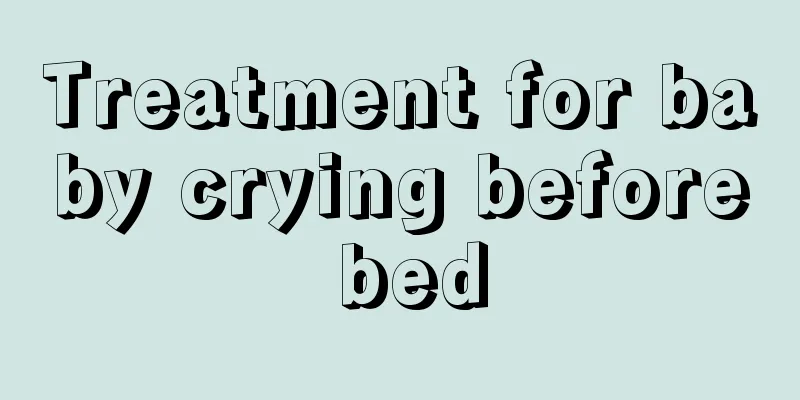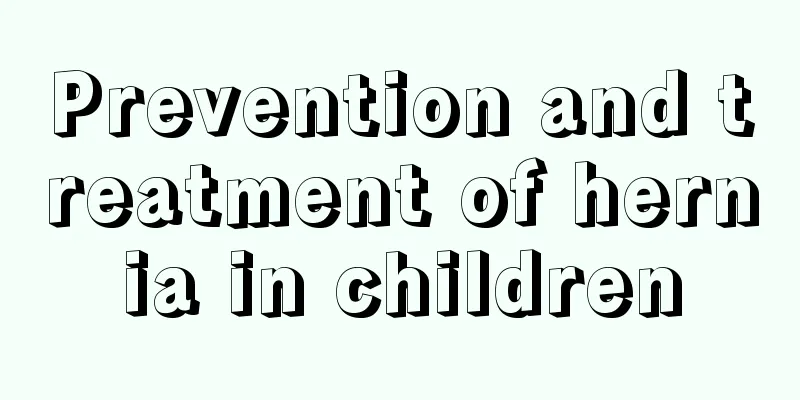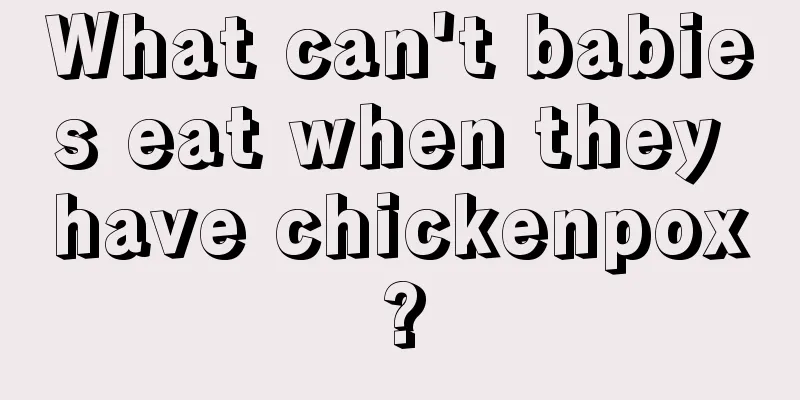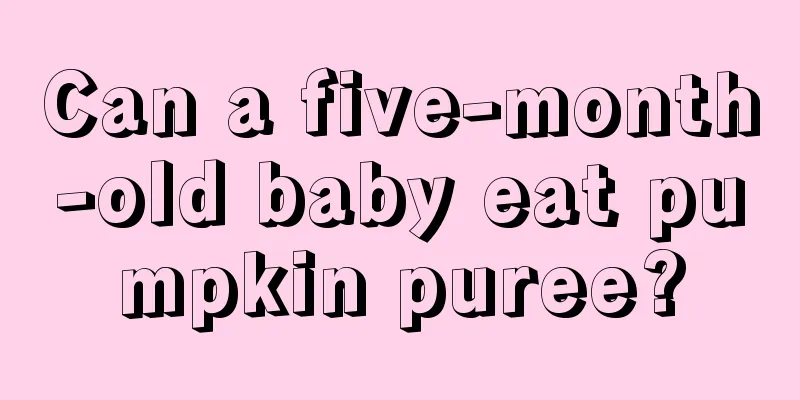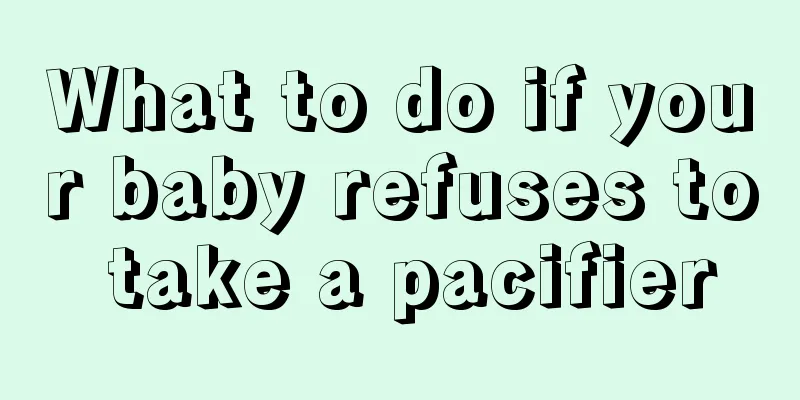10 Mistakes When Giving Medicine to Your Baby
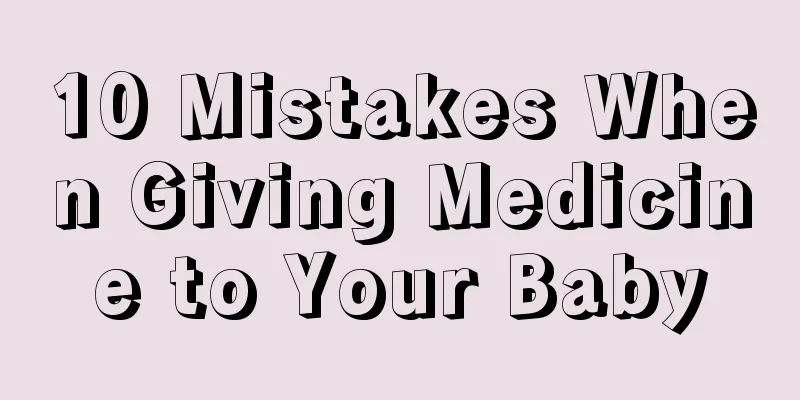
|
We often say that "medicine is three parts poison", but when the baby is sick, he has to take medicine. If the parents are careless in using the medicine or feeding the medicine in the wrong way, the consequences can be very serious, so parents must not take it lightly. The editor introduces 10 common mistakes when feeding babies. Parents should quickly check whether they have fallen into the misunderstanding of feeding medicine. Pinch the baby's nose to force-feed medicine Babies are afraid of bitter things, especially the unpleasant smell of traditional Chinese medicine, which always makes them refuse to open their mouths. Some mothers, after trying soft or hard methods to no avail, have no choice but to pinch their baby's nose and force the medicine down the baby's throat. This method can easily cause the baby to choke on the medicine and cause suffocation. Once such a danger occurs, parents should take emergency measures immediately, hug the baby's abdomen with both hands, make its back close to your abdomen, squeeze the child's abdomen hard, and make it bend over, repeat several times in order to remove foreign objects in the airway. If it doesn't work, go to the hospital immediately. Give your baby dry pills to swallow Generally, medicines are taken with water, but some mothers see their babies drinking the water but the pills are still in their mouths, so they ask their babies to swallow the pills dry. Although the tablets swallowed dry are no longer in the mouth, they can easily remain in the digestive tract and damage the digestive tract mucosa. Therefore, it is better to take medicine with water. If the baby cannot learn to swallow pills with water, the mother needs to spend more time and effort to teach him. If it is really difficult, you can also crush the tablets into small pieces to help your baby swallow. Trick your baby into thinking medicine tastes like candy Mothers will do whatever it takes to get their babies to take medicine, usually by coaxing them into saying that the pills taste as sweet as candy. Although babies usually realize their mothers are lying after they take the medicine, some children's medicines do have sweeteners to cater to children's tastes. But this white lie can easily make the baby mistakenly think that medicine and sugar are the same thing, and eat the medicine recklessly thinking that it is sugar. Increase or decrease the dosage at will Every family has a small medicine box, and parents often act as "doctors" to prescribe medicine for their babies. However, some parents are eager to get better and believe that increasing the dosage of medication can help the disease heal sooner, so they blindly increase the dosage of medication for their babies. The larger the dosage of the drug, the greater the toxic side effects, which can lead to acute or cumulative drug poisoning in severe cases. Some parents frequently change other drugs when they see that the drug has no effect after a few days. This approach not only makes it difficult to achieve the desired effect, but also causes the body to develop drug resistance and adverse reactions, making treatment more complicated. Some parents are very casual when giving medicine to their babies. They feed their babies when they remember and it doesn't matter if they forget. As a result, not only is the therapeutic effect poor, but it can also easily cause bacteria to develop drug resistance and drug resistance. These are things parents should be wary of avoiding. Taking medicine for too long The baby caught a cold, and the mother thought it was a minor matter, so she made some medicine for the baby. After taking it for several days, the baby's condition didn't seem to get better. In this case, if there is no improvement after taking certain medicines for two or three days, you should stop taking them. It is very likely that your baby's illness is not as simple as it seems on the surface, and you must take him to see a doctor as soon as possible. Otherwise, the effective treatment period may be delayed or the disease may worsen without the mother knowing. Blind use of antipyretics Newborns and infants are more prone to fever because their body temperature regulation function is not perfect. They will also show signs of fever when the ambient temperature changes or they are not fed enough water. However, parents must not feed their babies antipyretics for this reason. Some antipyretics such as aspirin, pediatric antipyretic tablets, APC, etc. are prohibited for newborns. The best way to deal with fever in infants and young children is to use physical cooling methods to reduce fever and encourage them to drink plenty of water, such as opening the blanket to expose the limbs, wiping the neck and palms of hands and feet with alcohol at a concentration not exceeding 30%, and using a cold water bag as a pillow. Babies with persistent high fever should be taken to the hospital immediately for medical treatment and take medication according to the doctor's instructions. Sharing prescription drugs without permission Symptoms that appear to be the same may be caused by different reasons. Even if the same baby has exactly the same disease as before, before using the same prescription medicine on the baby, you should ask the doctor to check and tell the doctor what medicines you have on hand so that he can make a judgment. Therefore, parents should not share medicines without permission because of laziness. Not taking medication as directed Some syrup-based medicines need to be shaken well before taking; certain alkaline medicines should not be taken at the same time as fruit juice, because fruit juice contains acidic substances, which can cause many drugs to break down prematurely, or cause the sugar coating to dissolve prematurely, and the neutralization of acid and alkali will greatly reduce the medicinal properties; milk should not be used to give babies medicine... Parents should understand these principles of medication in advance. If the medication is not taken according to instructions, it will affect the efficacy of the medication. |
<<: How to use medicine for children with fever
>>: What are the reasons for the baby's big belly
Recommend
At what age is it better for children to sleep in separate beds?
Babies sleep in the same bed with their parents f...
What are the symptoms of congenital heart disease in newborns?
Congenital heart disease is the most common disea...
What should I do if my child has phlegm in his throat?
When the baby is still very young, many parents m...
What to do if children cough at night
Babies have a relatively fragile constitution and...
What medicine should a 3-year-old baby take for vomiting?
For a 3-year-old baby, although the body is relat...
Is it normal for a one and a half year old baby to have teeth?
Now the safe growth of the baby is the most conce...
How to treat phlegm-damp cough in children
Children's coughs always come back and are no...
One year and two months old baby early education
Early education has a great influence on the grow...
Little pimples on the child's arm
Children's physical health is very important,...
What are the symptoms of indigestion in babies?
Nowadays, many children like to eat snacks, and m...
What should children eat when they have nosebleeds?
Children are more naughty, and sometimes there wi...
How to treat children's excessive liver fire? It turns out this is the way
As we all know, if children do not have an approp...
What are the prevention methods for hernia in children?
Nowadays, children are the treasures of every hou...
Do caries in deciduous teeth need to be filled?
Some parents often have this perception that thei...
What to do if your child drools too much
Many parents will find that their children have s...
